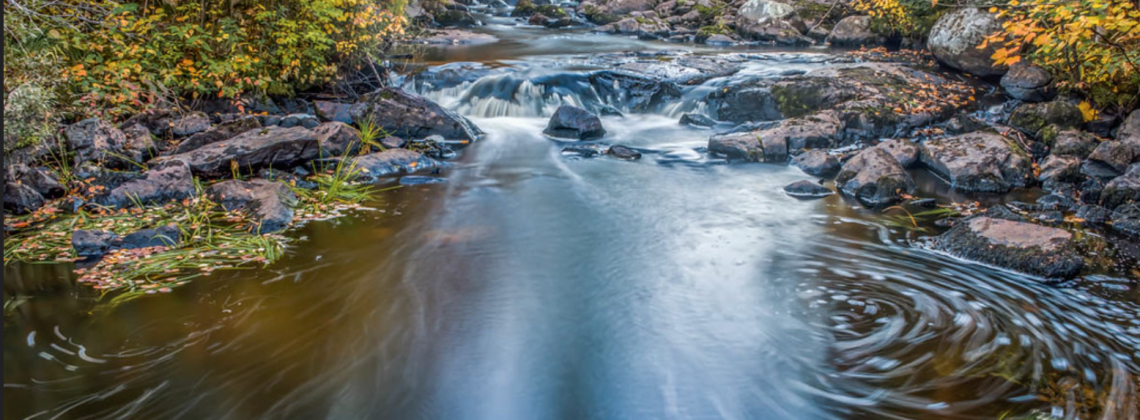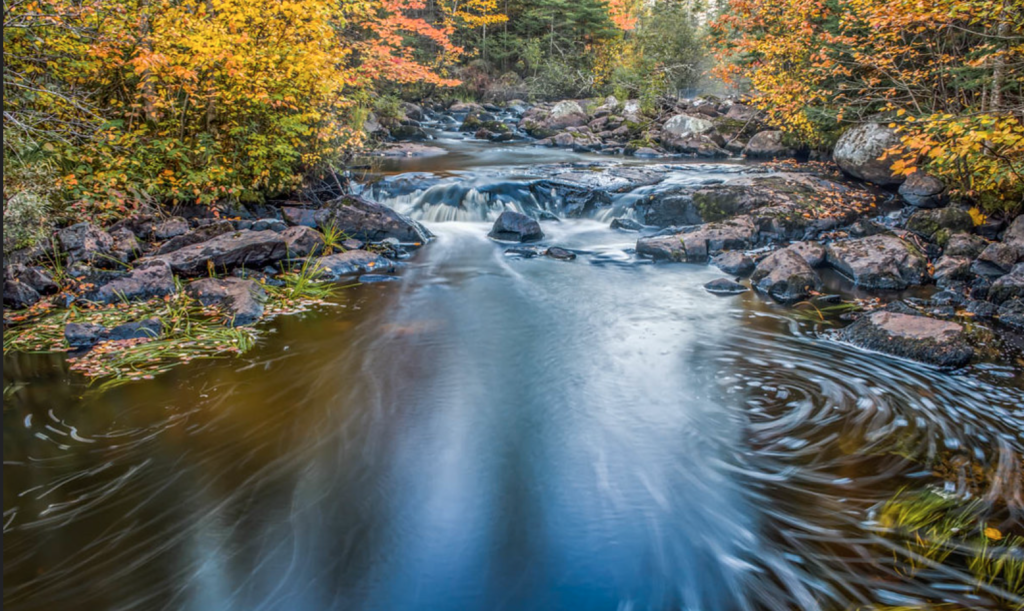

What dimension of eternity is in your sights?
I understand the value of staring at water. I do it myself, at least more often these days than ever before. I’ve read Walden and Pilgrim at Tinker Creek. I’ve seen my father sit for hours on the beach, looking out across the Atlantic, locked in a kind of meditation that I’ve mistakenly referred to in my mind as, “Dad is relaxing.” I now know what it really was: my father and the notion of eternity coming to some kind of hallowed and irresistible agreement.
There are woods off my backyard, and down through them runs a creek. I go there a couple mornings a week to sit and fish. “My creek,” I like to think of it, but it is properly called South Chickamauga Creek, and it runs to the Tennessee River, not all that far from where I live. This past spring I spied a muskrat mother chirping to her baby, a little brown puffball that followed along in her wake. I watched her groom the baby, love it, lead it along the creek bank and out of anything’s sight except mine.
But I deceive myself—as if, even there in my sheltered spot in the woods, there aren’t ten thousand pairs of hidden eyes watching everything, all the time. The next morning an osprey dive-bombed the water and ended a fish. Death by talons, ripped apart and eaten.
Through both of these little events, and more like them ad infinitum, the creek flows, smooth and quiet, with the power and ceaselessness of time-before-time. I sit on the bank on an upturned bucket that used to hold a year’s supply of laundry detergent and watch the history of the world roll past.
A creek is a thing that was and is and will be, over which I have no say, over which I may make no decisions. I wonder if I’m even welcome there. Squirrels fling down walnuts and nearly clock me on the button of my ball cap. It will hurt too, if they ever finally bulls-eye me. They are warning shots I take to heart. “I’m sorry I’m here,” I want to say, “I’m sorry I’m anywhere.” But sometimes the creek gives me a fish. Every now and then, if I’m lucky, a chunky largemouth or a catfish.
But of course, I am neither welcome nor unwelcome beside the creek. I am only incorporated. Subsumed, if I sit too long.
Thoreau and Dillard and my father can quiet themselves in the presence of great water. Or, rather, they have the rare capacity to perceive the greatness inherent in bodies of water and the wherewithal to properly venerate it. They are among the wisest, who can accept water’s invitation to a somehow contradiction-less state of communion and solitude. In so doing, I think they find something of themselves, a perpetual key maybe, attainable only via their open-ended proximity to water.
But I have a problem—if it is a problem. I can only see to the bend in the creek, upstream or down, just where the water is curtained by the woods. I can only hold the sight of the water in front of me for so long before it burns some buried spot in my mind, and I turn my head to watch the sylvan horizon: What about the water I can’t see from my spot by my creek on my ass on my bucket?
My discontent might come, at least in part, from my dogged pursuit of fish. What I lack in actual skill I’m trying to make up for in tenacity. It’s my only hope. No fish here? Maybe fifty yards up, by that huge, fallen oak. Okay, no fish by the oak. What about that eddy, up the way a little more?
At least once I’ve lost an entire day responding to those little questions. I snap shut my tackle box and drop it, along with my pliers and bait, into my bucket, and take the bucket handle and my fishing rod in hand and crash through the trailless scrub brush as close along the water’s edge as I dare. It must be a game to the kudzu, the saplings, the snake holes, the deer bones, all that poison ivy. Trip the Chump with the Bucket and Rod. What does he think he’s after, anyway?
It’s probably not fish. Buried in my biting restlessness must be another sense of eternity—not a state of agreement with it; more like a desire to outpace it. I think I want to gather all I can from earth’s temporal presentations—all I might see and hear and have and incorporate into my own essence right now. Before eternity rolls.
But in light of all that, my affront to forever, it may be that the great waters of the world have never offered me the place they’ve offered to Thoreau, Dillard, my father. Or maybe I haven’t heard it, or I’ve denied it. Maybe I suspect that I’m not worth the offer.
Most mornings I’m creek-side early enough to watch the fog rise from the water and float away like a crowd of shrouded monks following angelus bells I can’t hear. Fish, or just the possibility of fish, may be the water’s consolation prize. But even silver medals from someone else’s inexorable glory are enough, so far at least, to keep me coming back.
Paul Luikart is the author of the short story collections Animal Heart (Hyperborea Publishing, 2016), Brief Instructions (Ghostbird Press, 2017), Metropolia (Ghostbird Press, 2021) and The Museum of Heartache (Pski’s Porch Publishing, 2021.) He serves as an adjunct professor of fiction writing at Covenant College in Lookout Mountain, Georgia and lives in Chattanooga, Tennessee.
Photo credit: jakemccluskeyphotography